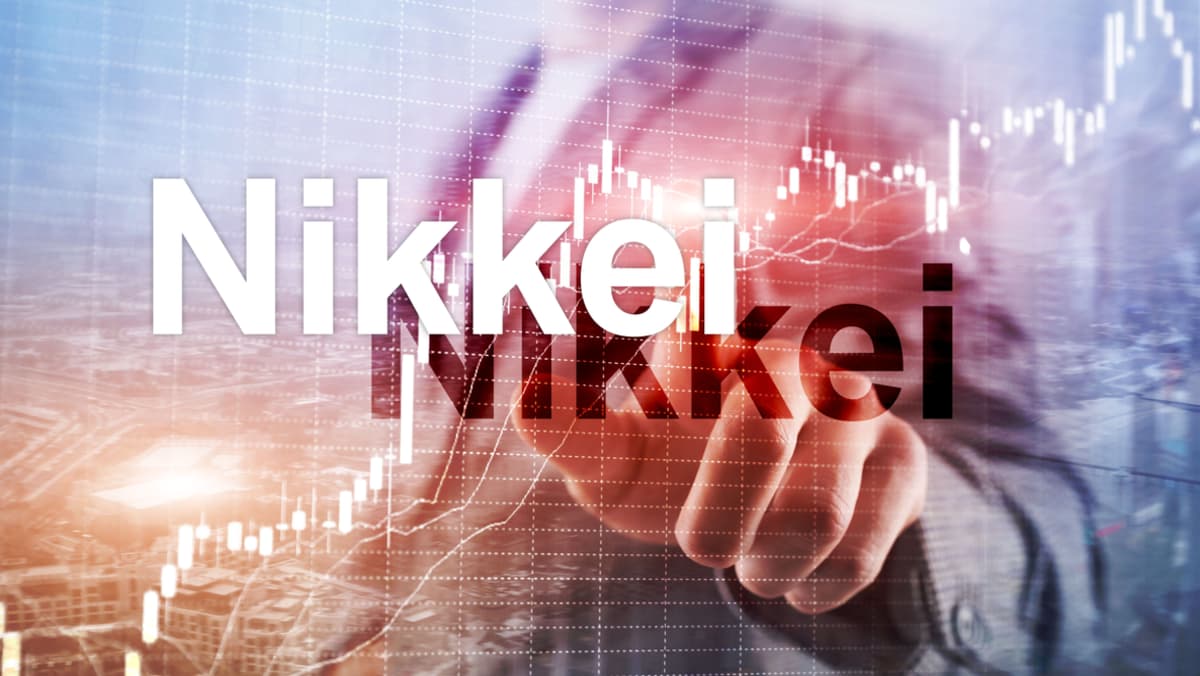
Thursday Jul 11 2024 15:12

7 min
Nikkei 225 jumped 1% to surpass 42,000 to reach a new ATH driven by surging AI-related chip stocks and expectations for Federal Reserve rate cuts. Tech stocks were the top performers, with gains in Disco Corp, SoftBank Group, and Tokyo Electron.
Following a record close on Tuesday, global markets mirrored the gains seen on Wall Street.
On Wednesday, the Nikkei 225 index reached an intraday high of 41,889.16, showing volatility as it fluctuated throughout the day and occasionally retraced. Over the past year, the benchmark has surged by nearly 30% and has recorded a 5% increase in the last three months.
Investors have been eagerly buying technology-related stocks amid growing optimism about the potential of artificial intelligence. Additionally, export-oriented firms have enjoyed robust gains as their profits surged on account of the depreciation of the Japanese yen. The U.S. dollar fell to 161.60 Japanese yen from 161.66 yen.

The Nikkei Index, or Nikkei 225, stands as Japan's premier stock market gauge, encompassing the top 225 companies listed on the Tokyo Stock Exchange. Widely acknowledged, it serves as a pivotal indicator of both Japan's stock market health and economic performance.
Companies listed on the Nikkei Index include Sony Corporation, Canon Inc., Nissan Motor Corporation, Mazda Motor Corporation, and Panasonic Corporation. The index comprises companies from 36 different industries. As of 2013, the leading sectors were technology, consumer goods, financials, transportation and utilities, capital goods/others, and materials.
Recent surge
The recent surge in Japanese stocks marks a significant turnaround from the economic stagnation endured over the past three decades. The Nikkei 225 last reached a record high during a market bubble in 1989, followed by what became known as three "lost decades" characterized by sluggish economic growth and stagnant prices in Japan, leading to prolonged periods of underperformance. However, as Japan's stock market enters a new phase of strength, its currency has notably depreciated.
Japan's stock market has experienced remarkable growth in recent years. The Nikkei 225, which monitors the 225 largest companies by market capitalization on the Tokyo Stock Exchange, has surged by an impressive 130% from its low point induced in March 2020, reaching a record high surpassing 38,000 points. This performance outshines the impressive 121% increase seen in the equivalent U.S. index, the S&P 500, during the same period.
The broader Topix Index also gained 0.69% to 2,929, the highest in 34 years. In the US, the S&P 500 and Nasdaq Composite notched new record highs as well, with major US technology firms leading the advance.
On the economic front, data showed that core machinery orders in Japan, a leading indicator of capital spending in the coming six to nine months, unexpectedly declined in May. Technology stocks led the advance, with gains from Disco Corp (3.4%), SoftBank Group (0.8%) and Tokyo Electron (0.6%). Other index heavyweights also posted strong gains, including Sony Group (3.6%), Fast Retailing (2.3%) and Nintendo (1.1%). In corporate news, Toyota joined a consortium of carmakers to back North American-based EV-charging firm IONNA.
SoftBank
SoftBank stock hits its first record high in 24 years, its shares closed at a record high of 11,190.00 Japanese yen on Thursday, eclipsing the previous intraday high of 11,000 yen reached on Feb. 15, 2000.
Toyota
Toyota, Japan's largest company, boasts a market capitalization exceeding $273 billion. As the world's leading automobile manufacturer, Toyota produces approximately 10 million vehicles annually. Furthermore, it ranks as the 20th largest company globally by market capitalization.
Tokyo Electron
Market analysts expect Tokyo Electron to generate a net profit of roughly 430 billion yen in the year ending March 2025 and about 560 billion yen the year after that. Both forecasts represent upgrades of 10% since the start of the year.
Disco Corp
DISCO's profits have hit a record high for the fourth consecutive year due to increased profitability, over the last year DISCO CORPORATION has showed a 183.68% increase,
Nintendo
Nintendo has unveiled its latest financial results, highlighting a robust year driven by strong net sales and profits, fueled by the success of titles such as Zelda: Tears of the Kingdom, Super Mario Bros. Wonder, and The Super Mario Bros Movie. The company is expecting a much tougher year, forecasting a 20% drop in net sales for the twelve months ended March 31, 2025.
The Nikkei 225 jumped 0.8% to 42,179.84, again surpassing its all-time high after closing at records on Tuesday and Wednesday.
The Hang Seng in Hong Kong climbed 1.1% to 17,667.58.
The Shanghai Composite index was up 0.7% at 2,959.25, while the Kospi in Seoul gained 0.8% to 2,891.34.
Australia’s S&P/ASX 200 rose 1% to 7,894.30. Taiwan’s Taiex advanced 1.1% as Taiwan Semiconductor Manufacturing Corp. jumped 2.4%.
TSMC’s U.S.-listed shares rose 3.5% after it said its revenue climbed nearly 33% in June from a year earlier.
The S&P 500 jumped 1% and topped the 5,600 level for the first time, closing at 5,633.91.
When considering shares, indices, forex (foreign exchange) and commodities for trading and price predictions, remember that trading CFDs involves a significant degree of risk and could result in capital loss.
Past performance is not indicative of any future results. This information is provided for informative purposes only and should not be construed to be investment advice.
